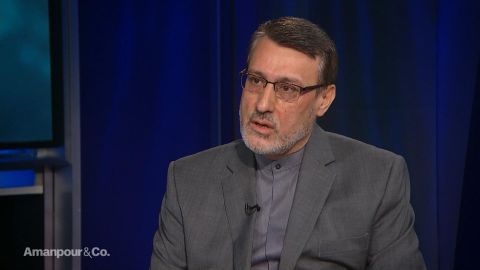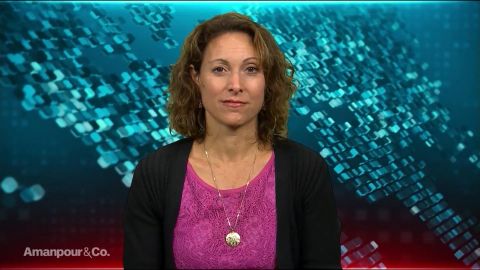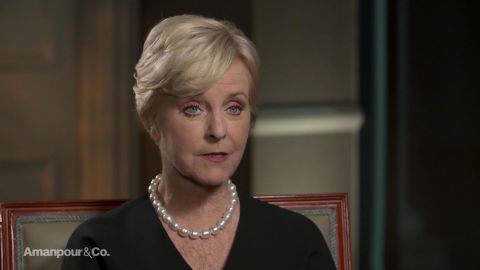Read Transcript EXPAND
EMILY BAZELON, AUTHOR, “CHARGED”: Well, I think that’s wrong with that picture is that if you go back even further to the 1970s, that was a time when crime in the United States was rising. And so, when incarceration rose in response, you could see the relationship there. But then, you see violent crime go down, way down. In places like New York City, it’s down to the levels of the 1950s. And yet, incarceration continued to rise and it’s really stuck at the 1980s level as if we still had this epidemic of violent crime we had back then. So, we have not caught up to the level of crime falling and we have also not faced up to how damaging incarceration is for the families of people who go to jail and prison, for the communities they come from and, of course, for the people who experience this. And there are real questions, I think, finally being asked in the United States about how we’re using our resources and whether this is actually helpful or a harmful pursuit of mass incarceration that we’re engaged in.
CHRISTIANE AMANPOUR: OK. Well, it’s certainly infamous around the world, the United States mass incarceration is infamous. And again, let me put up another chart because it’s worth just seeing. You write in your book, you give incredibly interesting case studies that you follow, but you are mostly focusing on I think you term prosecutorial zeal and the plea bargain process. So, walk us through what that means and how it’s led to this.
BAZELON: Well, prosecutors have much more power than the American system was designed for. And they are really the missing piece in explaining the American mass incarceration puzzle and why are rates are so much higher than the rest of the world. In the ’80s, lots of states started passing mandatory sentences. When you make a sentence mandatory, it means that the punishment is baked into the charge and it’s the prosecutor who controls the charge. The higher you set the charge with a mandatory sentence or by stacking charges, the more leverage you have to force a plea bargain. It’s very hard for defendants when they’re facing significant time in jail or prison to take a risk and roll the dice on going to trial. They know that the prosecutor and the judge will punish them by making their sentence much higher if they lose at trial. And so, that’s the dynamic we see here in which prosecutors are just playing this key role.
AMANPOUR: So, obviously, there’s a devil’s advocate question to be had. You know, you’re talking about essentially either the crisis of mass incarceration, which now is becoming something the public and indeed politicians, even President Trump are looking at. And then you have the crisis of victims’ rights, that most law and order types and politics seems to venerate obviously. So, what about the victims’ rights?
BAZELON: Well, I’m so glad you brought up this point because victims are such an important part of this picture.
About This Episode EXPAND
Christiane Amanpour speaks with Hamid Baeidinejad in an excliusive interview about the US’s unprecedented decision to designate Iran’s Revolutionary Guard Corps a terrorist organization. She also speaks with author Emily Bazelon about the role prosecutors play in America’s mass incarceration crisis. Hari Sreenivasan speaks with Cindy McCain about her work fighting human trafficking.
LEARN MORE


